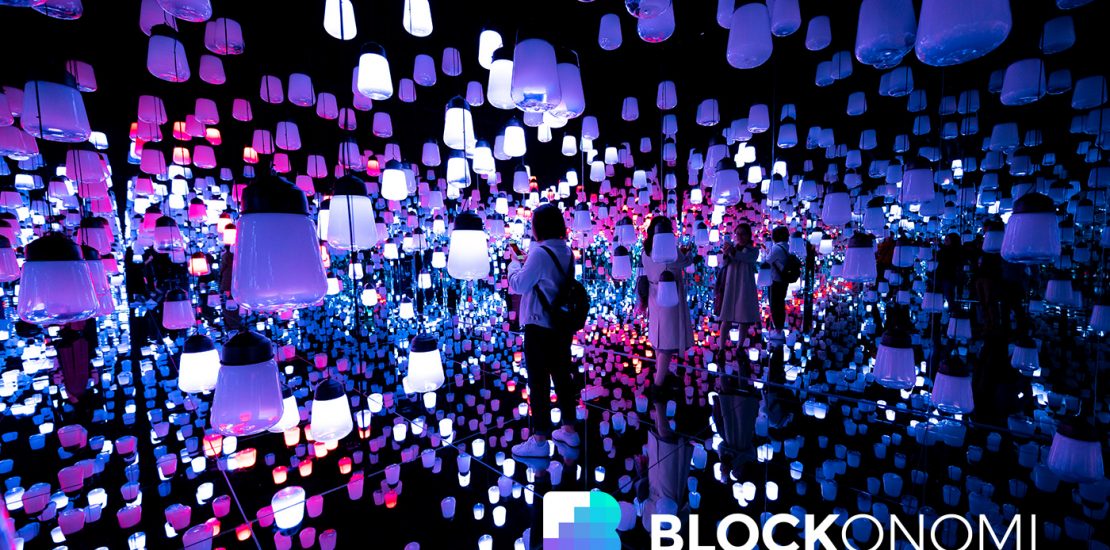- November 2, 2021
- Posted by: admin
- Category: BitCoin, Blockchain, Cryptocurrency, Investments


NFT adoption has increased at a frenzied pace in 2021. NFTs are expected to open a world of opportunity for artists, giving artworks a new way to approach the lovers and bringing art spaces back to their golden days.
Art galleries and museum exhibitions have been around for centuries. As a bridge between artists and art lovers, this specialized space has captured the presence of cultural education, socialization and visual moments.
The shifts in digital behavior was a turning point, not to mention economic uncertainties and nagging complaints about monopolies. Art galleries seem to be falling apart.
New Doors Open For Digital Art
Things got more and more complicated since the pandemic hit.
Art events went into oblivion when interaction between humans and the physical environment became a bad place to be. The incident closed one door but opened another for the art world.
A fresh art form is quickly becoming mainstream that could promise an industry-wide resurgence. That form of art has swept the Internet over the past few months – non-fungible tokens or NFTs.
Based on the principles of decentralization, proven originality and absolute ownership, the NFTs community could become the main driving force behind the next generation of art performance.
NFTs makes a simple yet powerful change in the way digital art works. Before, you could create a work of digital art and everyone would know you made it, but anyone can copy and share it with the whole world with just one click.
This makes it difficult to determine the originality of a digital artwork. Nor is there a perfect way to prove or transfer ownership of the digital piece.
Some May Gain Support
Frieze Fair London 2021, taking place from October 13-17, shows a drop in visitor numbers to London’s most prominent art attractions, a damning paradox given the year’s record number of arrivals to the annual event. .
Frieze London Art Fair is one of the largest art events in the world, gathering a multitude of interesting elements. If one is flexible on the beauty of art, one can hardly ignore the opportunity to appreciate Frieze London.
The 2021 edition is the 18th year this art event is being held, bringing together galleries with the number of artists up to thousands of people. The theme of this year spots on the world of post-pandemic and post-Brexit.
New Ways Forward for Art
Despite the NFT hype, the fair is sticking to its annual theme. It’s low on crypto-based artworks. On the bright side, it shows distinct viewpoints amid the crypto craze in London.
The rest of London, on the other hand, appears to be showing strong support for NFTs.
Take Andrei Tretyakov London-based a/political as an example. The aim of this foundation is to support socio-political artists, expanding the use cases of cryptocurrency and driving more adoption.
NFTs have attracted numerous corporate players as well as global stars and influencers. Numerous major houses have joined the game, including Sotheby’s, Christie’s and Phillip’s, and the British Museum.
In addition, by redefining digital asset ownership, NFT has transformed the way artists make a living, it also attracts people’s interest in blockchain technology – beyond investing in coins and tokens.
Digital Art is HOT
The reason NFT is popular in art is because digital artists can create scarcity for their work – which consists of only pixels.
Currently, real-world artists only get paid once when they sell their work. If the work’s new owner sells it to someone else, they pocket all of the profits while the artist gets nothing. NFTs allow creators to earn the amount they deserve.
NFTs have emerged in a time of blurred lines between our physical and digital worlds. A debate has grown over whether art belongs in physical galleries, or online, or even in virtual marketplaces.
The conversation will never stop, as new opinions and ideas shape the cultural landscape. But one undeniable thing is: NFT stepped in and changed the game.
The post NFTs to Bring Art Exhibitions Back appeared first on Blockonomi.
